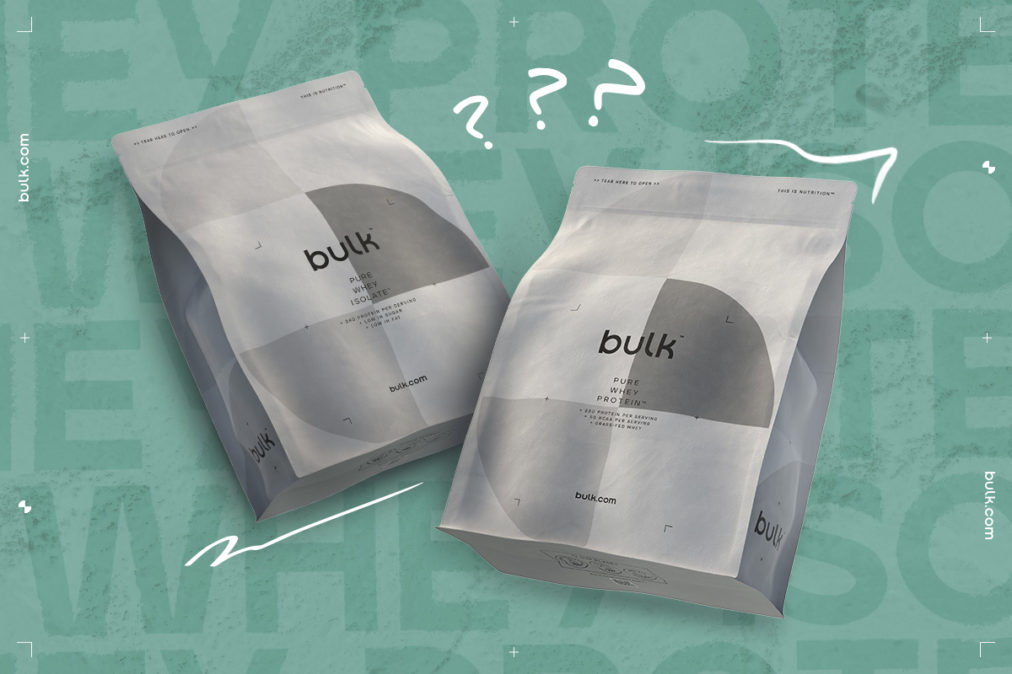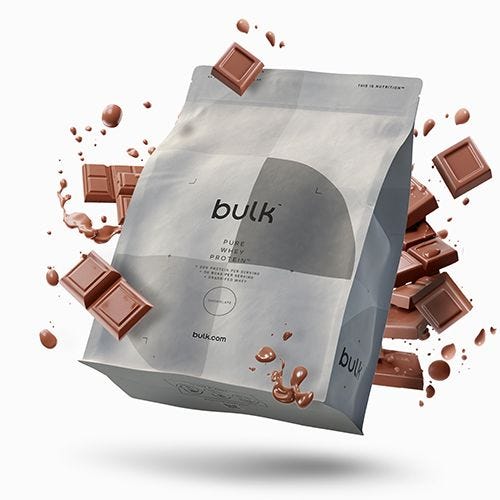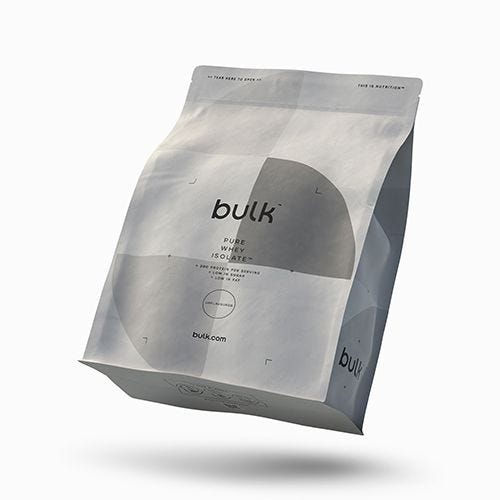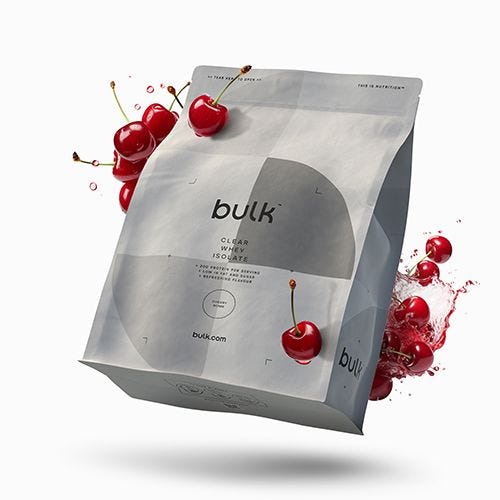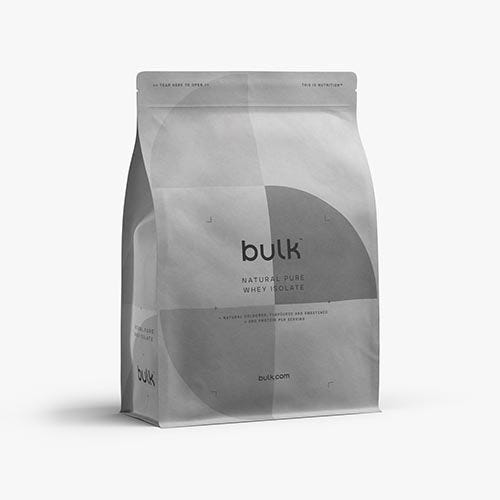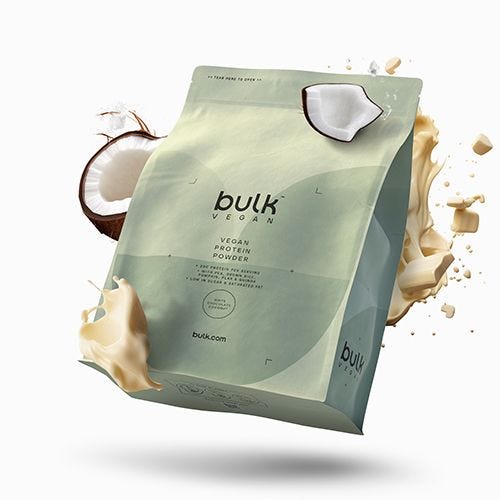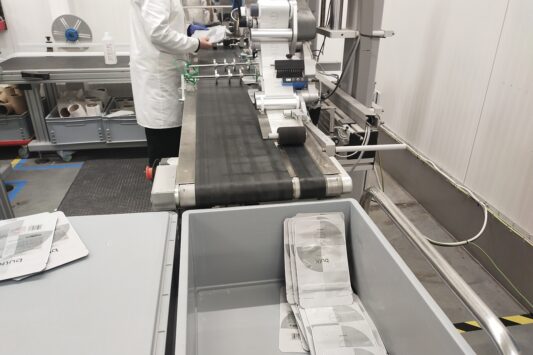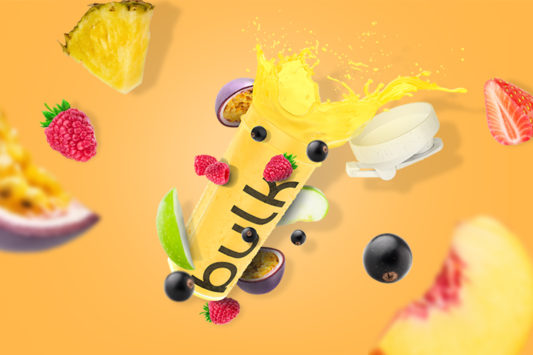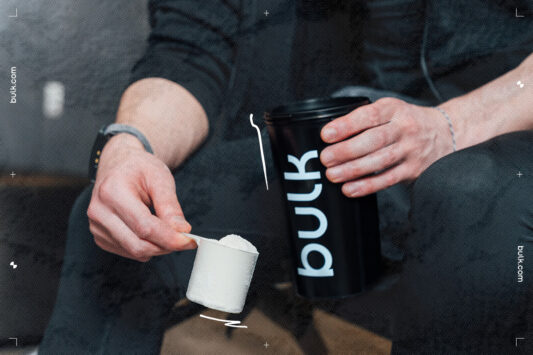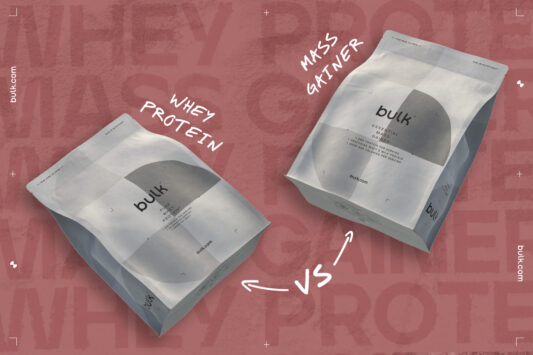Some of the most common questions asked about protein powders include the differences between similar products. One question, in particular, gets asked a lot. So we’ve decided to answer it. What is the difference between whey protein and whey isolate? Let’s find out.
If this article was a Christmas cracker joke, the answer (or punchline) would be, “Whey Isolate is more lonely”. Unfortunately, we’ve been told that this isn’t going to cut it in terms of an expert answer. So let’s get into some science instead.
Technically speaking, whey protein isolate is a form of whey protein. The real question here should be, “What is the difference between whey protein concentrate and whey protein isolate?”. But as it is more common, whey concentrate is usually referred to as ‘whey protein’. So for the sake of this article, when we say ‘whey protein’, we are actually referring to ‘whey concentrate’.
Whey Protein vs Whey Isolate Comparison Table
| Whey Protein | Whey Isolate | |
|---|---|---|
| Product | Pure Whey Protein™ | Pure Whey Isolate™ |
| Protein per serving | 23g | 25g |
| Carbohydrates (per serving) | 2.7g | 1.5g |
| Fat per serving | 1.2g | 0.2g |
| Calories per serving | 113kcal | 110 kcal |
Related Products
What is Whey Protein?
Whey protein (whey concentrate) is the most common and popular type of protein in the sports nutrition industry. Whey is a dairy-based protein derived from milk, and is actually a by-product of the production of cheese or yoghurt.
It’s considered a high-quality source of protein because it contains all nine essential amino acids, which have been shown to promote and maintain muscle mass. But whether you enjoy going to the gym, playing sports or being an active person in general, whey protein has its benefits.
Pure Whey Protein™ is our biggest seller and it uses whey concentrate as the source of whey protein. Our vanilla flavour, for example, gives you 23g protein per serving. This is the ideal amount for a post-workout shake.
What is Whey Protein used for?
Whey protein is most commonly used as a protein supplement in the sports nutrition industry as a quick, easy and cheap way to consume a decent amount of protein. However, it has actually been seen in some baby formula milk recipes due to whey being considered easy to digest.
You’ll hear about a lot of people using a whey protein supplement because it’s the go-to sports nutrition product. Its high protein, low carb, low fat and has a complete amino acid profile. There’s nothing not to love. It also comes in a huge variety of flavour options so you can find your favourite or work your way through the lot.
It’s perfect any time of day – breakfast, pre-workout, post-workout or afternoon snack. You can even add it into a smoothie or porridge. The options are endless. Whey protein, or vegan protein alternatives, are an essential for regular gym-goers to get the maximum benefit from their training.
Related Products
What is Whey Protein Isolate?
Whey protein isolate is extremely similar to whey concentrate, only it’s been through some extra processing steps to filter it even further. This means that more of the fats and lactose (carbs) have been removed from the whey, so the resulting whey isolate has a higher protein content and lower fat, carb and calorie content than regular whey concentrate.
The amino acid profile is virtually the same due to both whey isolate and whey concentrate coming from the same source. Both whey isolate and concentrate have a similar neutral-milky taste.
Our Pure Whey Isolate™ has the excellent nutritional profile expected with a whey isolate. It comes in a range of delicious flavours including Pistachio Ice Cream, Banana Fudge, White Chocolate and Salted Caramel.
What is Whey Isolate used for?
It’s also a good option for people who are sticking to strict macronutrient intakes, as it has a lower fat, carb and calorie content than whey concentrate.
If you have difficulty digesting lactose, whey isolate can be a good option. This is because the extra filtration steps make the lactose content in whey isolate lower than in whey concentrate. So if you find whey concentrate gives you bloating or digestive issues, it’s worth giving whey isolate a go.
Related Products
Whey Protein Isolate vs Whey Protein – which should you take?
The choice on whey protein or whey isolate is completely dependent on you, your goals and your preferences. The first thing that should be said is that, in terms of muscle growth, the benefits are similar. They offer a similar amount of protein (whey isolate is higher) and thus the opportunity for muscle protein synthesis.
The differences are more about preference. For example, if you’re looking to cut and take a laser-accurate account of your macros, we’d recommend the Pure Whey Isolate™ for the lower fat content. Whey isolate is suitable if you find digesting lactose a little difficult to digest. If you’re on more of a budget and still looking for a healthy hit of protein, we’d go for the Pure Whey Protein™. Whey concentrate has the added benefit of creating a thicker and creamier shake.
Whichever choice you make, you know you’re getting a delicious, high-quality protein shake either way.
Related articles
Eager to learn more? We believe that every person, with support, has the right to transform their lives through fitness. That’s why we’ve put together hundreds of articles with expert advice, all to help you on your fitness journey. From the best supplements for muscle growth to how much protein your body can absorb, check out our relevant articles below:
What is Clear Whey Isolate? Alcohol and muscle growth
Protein shake: before or after workout? The benefits of liquid egg whites
Protein shakes for weight loss How much protein can your body absorb
Protein shakes with milk or water When to drink protein shakes
Best supplements for muscle growth How is protein powder made?
